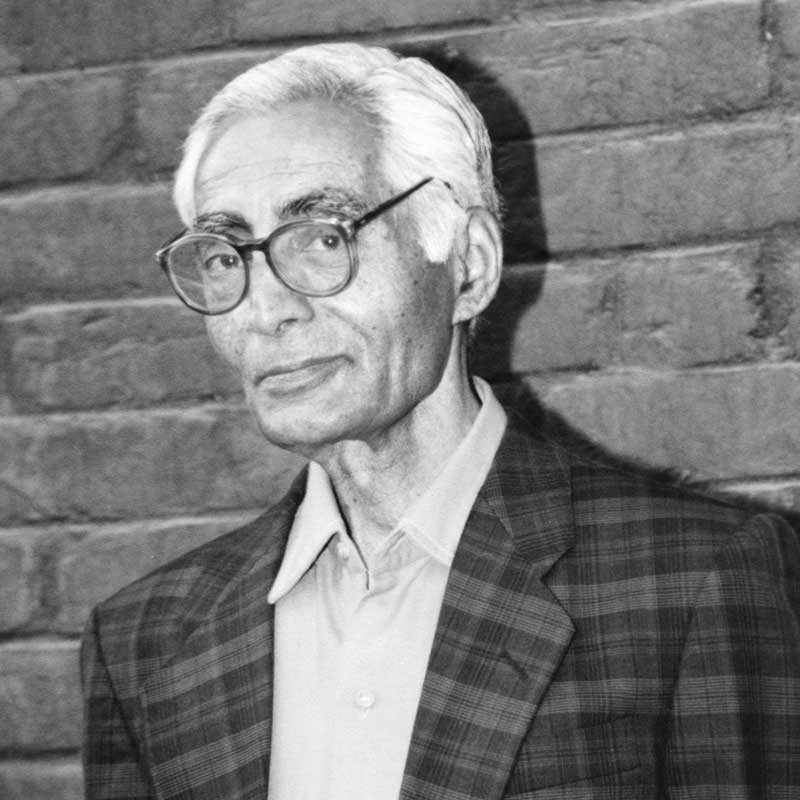
Ram Kumar (1924-2018) was born in Simla, Himachal Pradesh. He initially obtained an MA in Economics from St. Stephen’s College, Delhi, but decided to move towards an artistic career by taking classes at the Sharda Ukil School of Art under Sailoz Mukherjee. There, he met S.H. Raza and they became good friends, and he soon became associated with the Progressive Artists’ Group along with M.F. Husain, K.H. Ara, and F.N. Souza. Kumar also spent time in Paris, where he studied under Andre Lhote and Fernant Léger, and was inspired to join the French Communist Party.
Kumar is considered to be one of the first Indian artists who moved away from figurative painting, towards abstraction. He painted landscapes, and his media of choice was usually oil or acrylic on canvas. Kumar’s works were exhibited both in India and internationally, including the 1958 Venice Biennale, and two Festival of India shows which were held in the USSR, 1987, and in Japan, 1988. One of Kumar’s most recent solo exhibitions was in 2015 at the Jehangir Nicholson Art Foundation, Bombay. He also wrote in Hindi, and among his published works are eight collections, two novels, and a travelogue.
His main concern was the theme of the human condition, which manifested in his early works as the alienated individual in the city. Later on, he focused on the city of Varanasi, capturing its dilapidated and cramped houses, which conveyed a sense of hopelessness. Over his career, Kumar’s works become increasingly abstract, evoking both the joy of natural spaces and later, feeling of incipient violence which came with human habitation.
Kumar was the recipient of numerous awards including the Padma Shri (1972); the Padma Bhushan (2010); Rockefeller Fellowship (1970); and the Lalit Kala Akademi Fellowship (2011). He lived and worked in Delhi until his death in 2018.